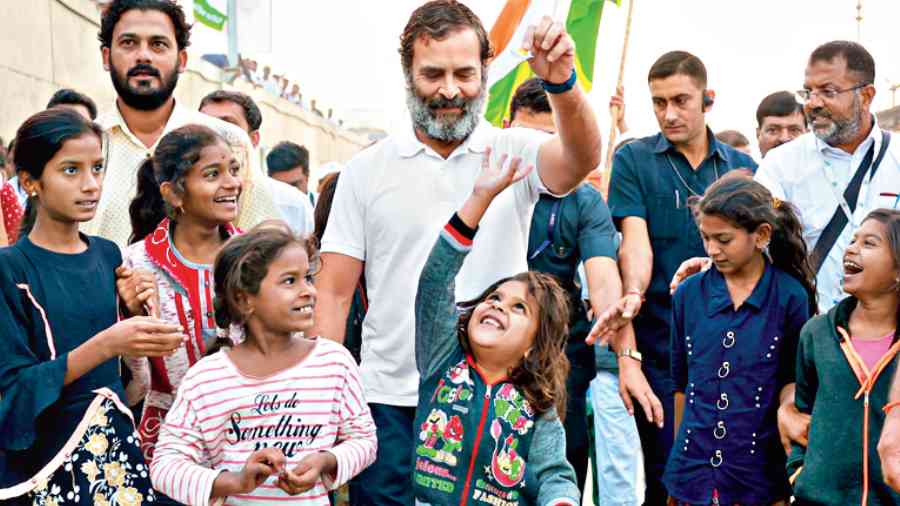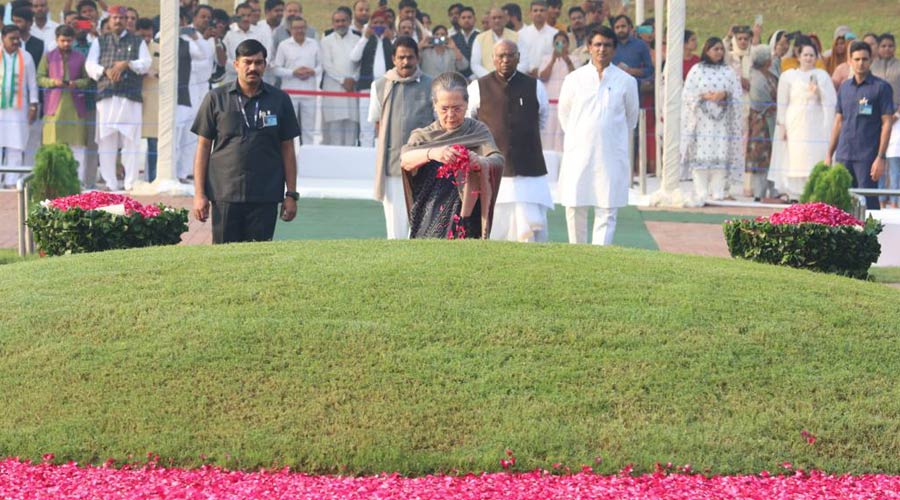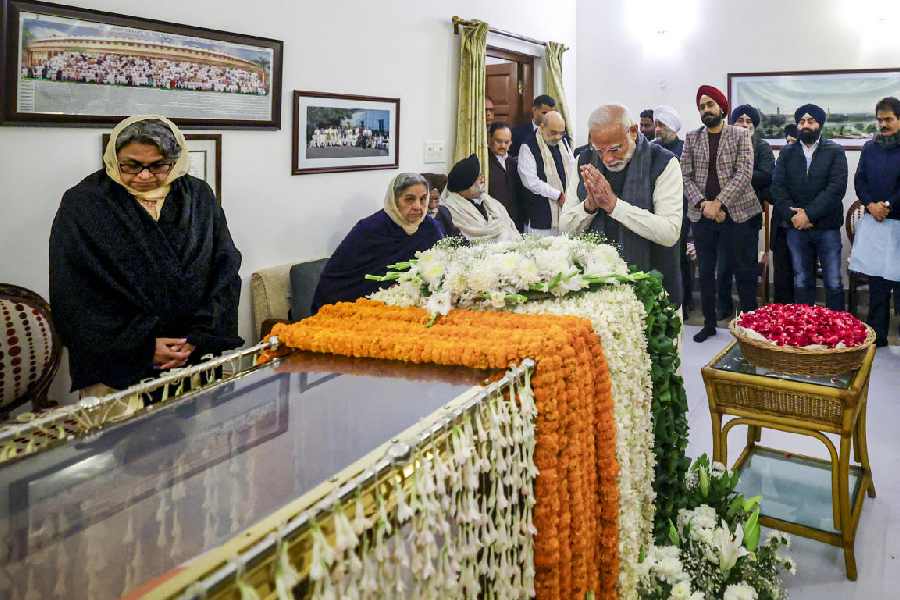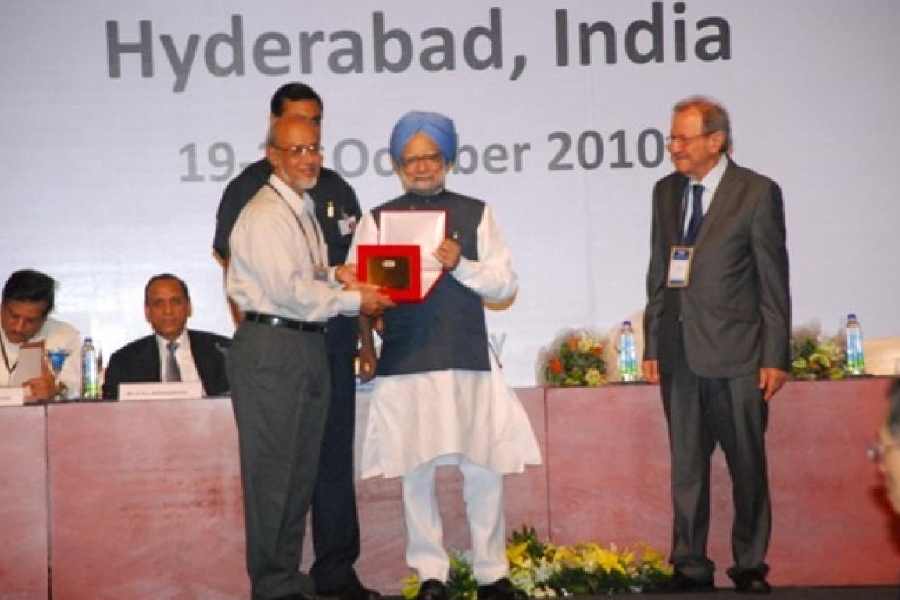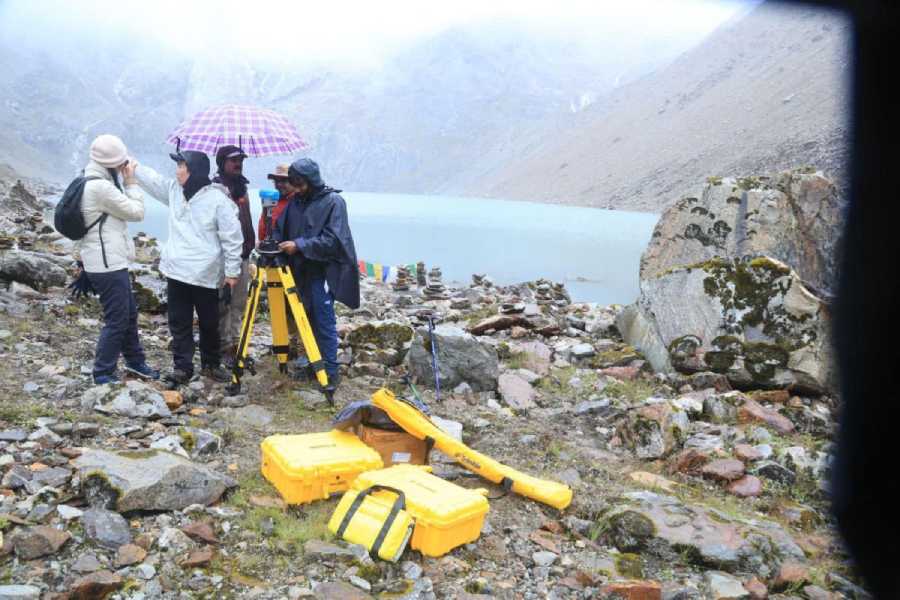Congress president Mallikarjun Kharge on Monday advocated an aggressive approach to counter false propaganda by the RSS-BJP about national leaders and their deliberate distortion of history, in order to protect constitutional rule in India.
Speaking on the occasion of Jawaharlal Nehru’s 133rd birth anniversary, Kharge said: “Prime Minister Narendra Modi’s pet dialogue is: ‘What happened in 70 years?’ They don’t debate on the basis of facts. They won’t tell you how India was transformed after 1947 — from food production to industrial development, from setting up great institutions to creating infrastructure. Their contribution is to mislead the people and create divisions. They have created so many fissures in society that Rahul Gandhi is compelled to go on a Bharat Jodo Yatra.”
Complementing Kharge, Rahul recalled from Maharashtra Nehru’s description of Bharat Mata, saying in a tweet: “Who is Bharat Mata? The most important are the people living in Bharat. These crores of people are Bharat Mata. I am walking (in the Bharat Jodo Yatra) with the same democratic, progressive and secular values of Nehru in my heart. To protect the Bharat Mata of India’s Jawahar.”
Nehru had asked people at one meeting: “Who is Bharat Mata, whose victory do you wish in this slogan ‘Bharat Mata ki jai’?”
Responding to people’s answers, Nehru had said: “The mountains and the rivers of India, and the forests and the broad fields, which gave us food, water, were all dear to us, but what counted ultimately were the people of India. Bharat Mata, Mother India, was essentially these millions of people, and victory to her meant victory of these people.”
This definition given by Nehru lies at the root of the difference between the Congress and the BJP in their perception of nationalism.
Kharge’s call to counter false propaganda did have a context. Union law minister Kiren Rijiju wrote an article on the first Prime Minister’s birth anniversary, detailing Nehru’s blunders, which Congress leaders rejected as falsification of history.
Another Union minister, Smriti Irani, entreated the people to read Rijiju’s article “to understand how personal agenda and loyalty towards one family overshadowed the idea of a united India”. Environment minister Bhupendra Yadav and several other BJP leaders and spokespersons too shared Rijiju’s article.
Recalling how the RSS-BJP resorted to false propaganda to create an impression that Nehru was an enemy of Subhas Chandra Bose and Sardar Patel, ignoring the basic fact that they respected one another despite their differences, Kharge said: “We have to aggressively fight their propaganda. Don’t be scared. We can’t protect constitutional rule and individual freedoms without rejecting this falsehood. We have to propagate Nehru’s views among the younger generations.”
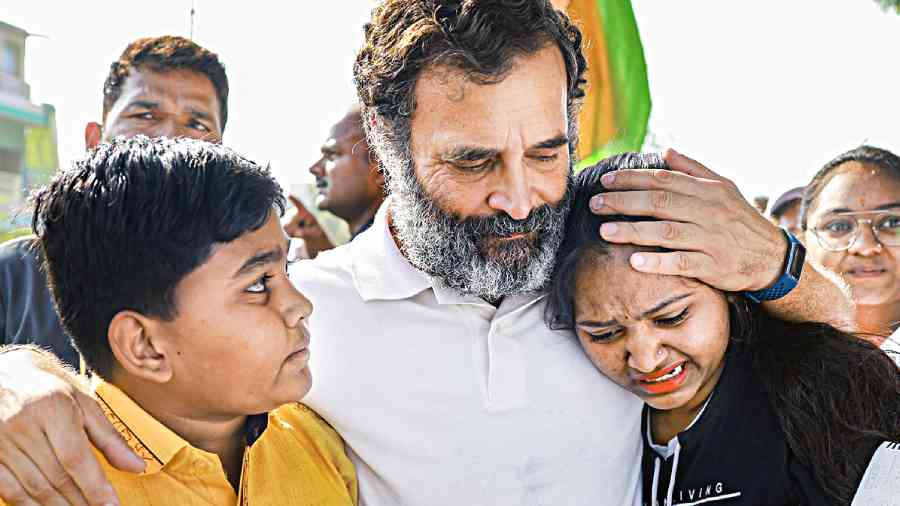
Rahul Gandhi with supporters during the Bharat Jodo Yatra in Maharashtra’s Hingoli district on Monday. PTI picture
Congress general secretary K.C. Venugopal pointed to the ceaseless campaign to malign Nehru, saying: “Modi has assigned the task of abusing national icons like Nehru to his ministers.”
Purushottam Agrawal, a professor who gave the keynote address at the birth anniversary event organised by the Congress, too stressed the centrality of the people in the nationalism discourse, contending that Nehru gave a “deep democratic and dynamic content” to the slogan “Bharat Mata ki jai”.
On the prevalence of false propaganda in today’s India, Agrawal said: “Delivering the Nehru memorial lecture in London, 1966, P.N. Haksar had described the ‘explosion of consciousness’ as the defining feature of his times. By our times, that is in the 22nd year of the 21st century, this explosion of consciousness has turned into a deluge of disinformation.”
Arguing that the inability to counter falsehood in this age of post-truth was an invitation to fascism, he said: “The struggle against such a possibility is a moral duty for every right-thinking human being, and Nehru is a perennial source of wisdom and inspiration for such a struggle. No wonder all forms of fascism fear and hate Nehru so intensely.”
Agrawal said the freedom movement was a reflection of universal human values creating a nationalist fervour without jingoism, adding that Nehru’s centrist policies helped India respect her diversity and adopt an “Indian approach” towards foreign policy, its economy and secularism. He hailed Nehru for deepening the roots of democracy in India, striving to create a scientific temper and building great institutions to promote literature, art and culture.

